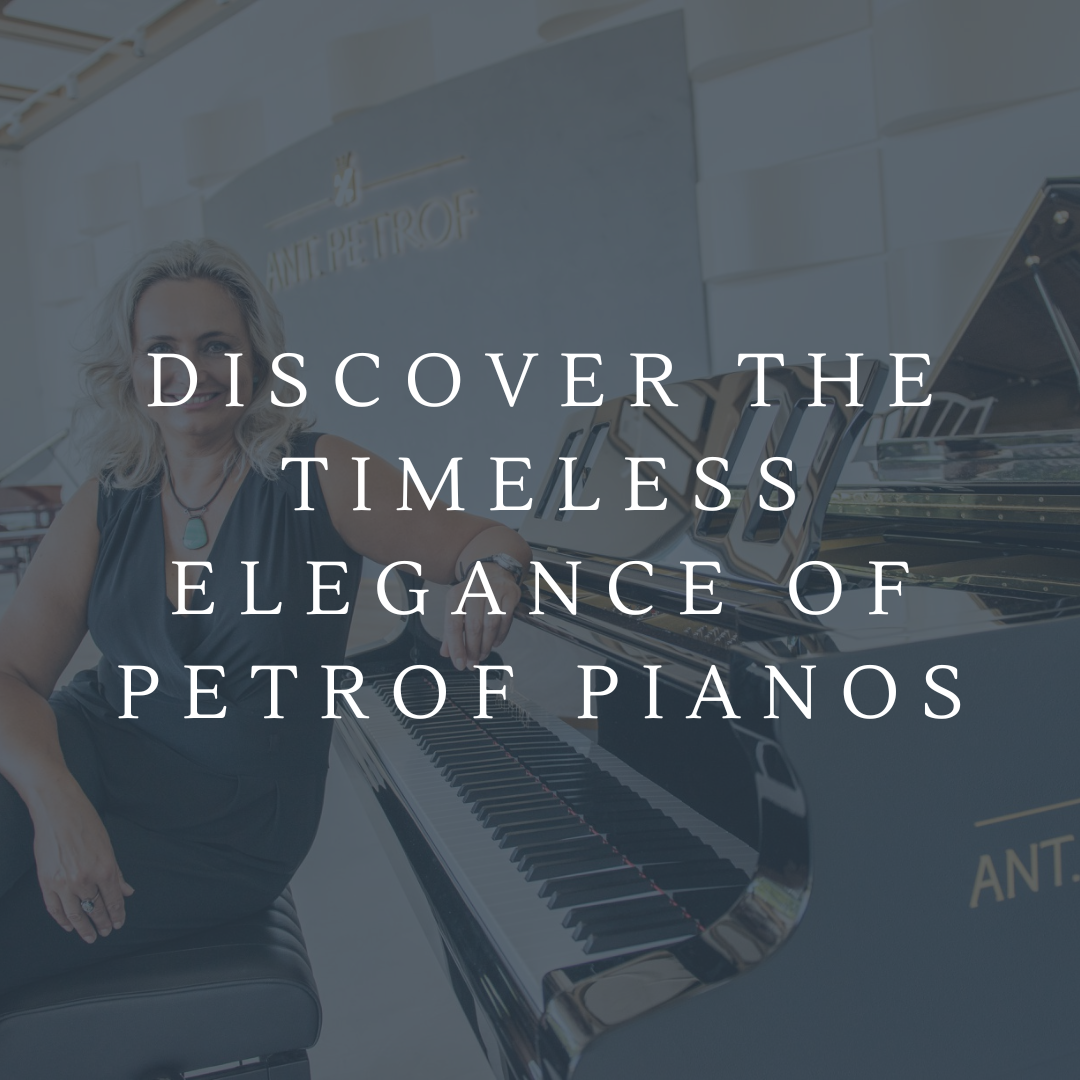
Founded in 1864 by Antonín Petrof in Hradec Králové, Czech Republic, Petrof has established itself as one of Europe's leading piano manufacturers.
Known for their exceptional craftsmanship and innovative designs, Petrof pianos are celebrated for their rich, warm tones and superior quality.
Petrof produces both grand and upright pianos, catering to a wide range of musicians from beginners to professionals.
Their pianos are renowned for their durability and the meticulous attention to detail that goes into each instrument. The company's commitment to excellence is evident in their use of high-quality materials, such as solid spruce for soundboards and precision-engineered components.
Over the years, Petrof has gained a reputation for its innovative features, including the Magnetic Accelerated Action, which enhances the dynamic response of their pianos
This technology, along with their traditional craftsmanship, ensures that Petrof pianos deliver a superior playing experience.
Petrof pianos have been played by many famous musicians, including Paul McCartney, Ray Charles, and Arturo Benedetti Michelangeli, further cementing their status as a top choice for discerning pianists.
Whether you're a professional performer or a passionate amateur, a Petrof piano offers an unparalleled musical experience.

Keeping piano students engaged over time requires more than assigning pieces and weekly practice goals. Creativity plays a major role in long-term musical development. When students enjoy the learning process, they are more likely to stay committed.

Live piano music continues to play an important role in events, hospitality spaces, and private gatherings. Unlike background playlists, live piano performances adapt to the atmosphere of the room and the energy of the audience.

Learning piano has never been just about notes, scales, or technique. At its core, piano education is about connection. Connection to music, to emotion, and often to the people around us. The most effective piano lessons are the ones that help students feel something while they play.